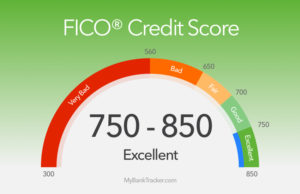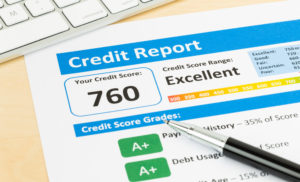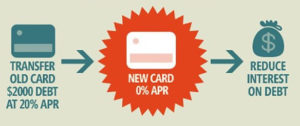Having a high credit score is imperative to a good credit history. To qualify for a favorable loan or be approved for financial accounts, a high credit score is a must.
If you don’t know your score, companies such as TransUnion, Equifax or Experian can easily unveil it for you. If you find that your credit score is low and you are trying to get approved for a car or mortgage loan, for example, there are ways you can increase your score in just 90 days.
Watch the video here:
Understanding Your Credit Score
Your credit score measures your credit worthiness and is based mainly on your credit history (whether you paid off loans and balances on time). The debt that you have accumulated, the length of your credit, as well as the types of credit you took all come into play when determining a person’s credit score.
A credit score ranges from 300 to 850. Your score is rated as follows:
 Excellent: 750 and above
Excellent: 750 and above
Good: 700 to 749
Fair: 650 to 699
Poor: 550 to 649
Bad: 550 and below
Since a credit score is used by lenders to assess risks, your credit history is one of the most important factors. If you have defaulted on your loans in the past, lenders feel you are more likely to do that in the future than other borrowers, therefore you pose a greater risk. The lower your score is, the harder it is to get qualified for new loans. Even if you qualify, you will likely be subject to unfavorable terms, such as higher interest rates.
How to Raise Your Credit Score
Fortunately, a bad credit score is something that can be easily fixed. All you need is some basic financial tips, patience and financial restraint. Here are some of the best ways to increase your credit score in 90 days or less:
Carefully Check Your Credit Report
 Credit reports are compiled automatically, and some errors can slip through the cracks, seriously hurting your credit score and preventing you from becoming eligible for a loan. This is why it is imperative to check your credit report at least once per year.
Credit reports are compiled automatically, and some errors can slip through the cracks, seriously hurting your credit score and preventing you from becoming eligible for a loan. This is why it is imperative to check your credit report at least once per year.
If you see any errors, take action right away. All big credit bureaus allow you to dispute errors online. If you spot an error that is preventing you from taking out a loan, like a mortgage, notify the lender who can contact the bureau for a rescoring and fix your credit score in just a few days, instead of the standard one month.
Use Credit Card Balance Transfers
 It is highly likely that high credit card debt is hurting your credit score. However, since you have accumulated substantial debt on it, it is difficult to pay it off, especially since the interest can be well over 18%.
It is highly likely that high credit card debt is hurting your credit score. However, since you have accumulated substantial debt on it, it is difficult to pay it off, especially since the interest can be well over 18%.
The solution to get rid of credit card debt is to transfer your balance to a new credit card. There are many 0% balance transfer credit cards you can take advantage of, which will help you pay off your debt faster with no interest rates.
Be careful to know exactly when the introductory period expires, as the rate may jump right away, making it difficult to pay off the amount. Also, keep in mind that there is usually a 3% balance transfer fee that you should account for.
Correct Past Mistakes
It is highly likely that you could have missed a payment to a company in the past and forgot about it. Or, the bill never reached you because of an error on the part of the company. Unfortunately, unpaid debt will have the biggest impact on your credit score, so try to correct these issues as soon as possible. You don’t have to pay all your debt at once—lenders will appreciate any effort towards repaying outstanding balances, and collection agencies will be happy to discuss options with you.
Negotiate with Lenders
 If an old credit card is causing you trouble, then you could negotiate a deal with your lender to have the “past due” history removed from your payment history. This will, of course, work if you offer to repay the debt in full.
If an old credit card is causing you trouble, then you could negotiate a deal with your lender to have the “past due” history removed from your payment history. This will, of course, work if you offer to repay the debt in full.
If you cannot repay the debt in full, you can try negotiating with the lenders. Some will either lower the amount you owe or set you up with affordable monthly payments. You can also try to talk down the interest rate that has accumulated on your debt to lower the amount.
Improve Your Credit Utilization Ratio
Your credit utilization ratio expresses how much debt you owe in comparison to how much credit you are approved for. For example—if you have $900 of debt on a credit card with a $1,000 limit, your credit utilization ratio will be 90%, which is very high. This hurts your credit score because your borrowing ability is limited.
If you have several credit cards with high debt to limit ratios, you have to repay as much of your debt as possible to bring the balance to 30% or less. Apart from freeing up some of your debt, this allows you to borrow more money, which improves your credit score.
Another option to improve your credit utilization ratio is to request a higher credit limit. Although lenders may be reluctant to approve you for higher credit due to your bad score, if accomplished, your utilization ratio will improve even if the debt remains the same. Consider this—if you owe $900 on a $1,000 limit, your credit utilization ratio is 90%; but if you owe the same amount on a card with a $1,800 limit, your ratio is now 50%.
Use Your Credit Cards Responsibly
Many are under the impression that a credit score can be improved by simply putting a stop to using credit cards. This is false. Remember that a thorough credit history improves your overall score because lenders have more data on you and can assess your risk factor better.
Instead of not using your cards at all, simply use them responsibly, which will show lenders that you are able to pay for what you charge.
Always Make Payments on Time
 Once you raise your credit score, maintain it by always paying your bills on time. If you want to improve your credit score in less than 90 days, meeting all your minimum monthly payments is a must. Don’t let any payments become overdue and manage your finances so that at the end of the month, you can pay all your bills.
Once you raise your credit score, maintain it by always paying your bills on time. If you want to improve your credit score in less than 90 days, meeting all your minimum monthly payments is a must. Don’t let any payments become overdue and manage your finances so that at the end of the month, you can pay all your bills.
If you cannot pay your bills, be smart and pay off the most important ones and the ones that will likely be reported by your lender to credit bureaus. Late mortgage and credit card payments are almost always reported, whereas your utility providers are less likely to notify bureaus about a late payment.
If, for some reason, you cannot make a monthly payment, contact the lender and ask for an extension. Being a few days late should not be too much of a problem if this is your first offense. If you present your case, the lender may offer you an extension and not report a late payment with the credit bureaus.
If your credit score is bad, you should do everything possible to improve it. These tips will help you restructure your debt and make amends with the bureaus and lenders. Remember that a bad credit score can be improved simply by making a phone call to your lender. Also, if your credit score is low, that doesn’t mean that you cannot or shouldn’t borrow anymore funds. In fact, taking out credit to pay outstanding debt can improve your credit score. You have plenty of credit cards to choose from that will help you get rid of old balances and keep your interest low.
Did you have a bad experience that impacted your credit score? What helped you get through it? Share your experience in the comment section below!
For more useful ideas for saving money, visit Savemoneytricks.com

























